You’re going about your business one day, driving in your car with the radio on when you hear a noise you could have sworn is a whistle. Well, perhaps it was just the song you’re listening to. Turning down the volume, you continue driving, turning as you do, and there it is again: a distinct whistling noise. What is happening to your vehicle and why?
If your vehicle whistles when driving and turning, it could be caused by issues with your wheel bearings. Wear and tear can damage these with time, making your vehicle feel loose. If ignored, the whistling problem tends to get noisier, and the problem could impact your tires and even your transmission, so you should see a mechanic right away.
In this article, we’ll get you very comfortable with your wheel bearing. You’ll learn what it is, what can go wrong with it, and when you need to fix it (as well as how much it will cost). Armed with this knowledge, you'll know what to expect when talking to your mechanic.
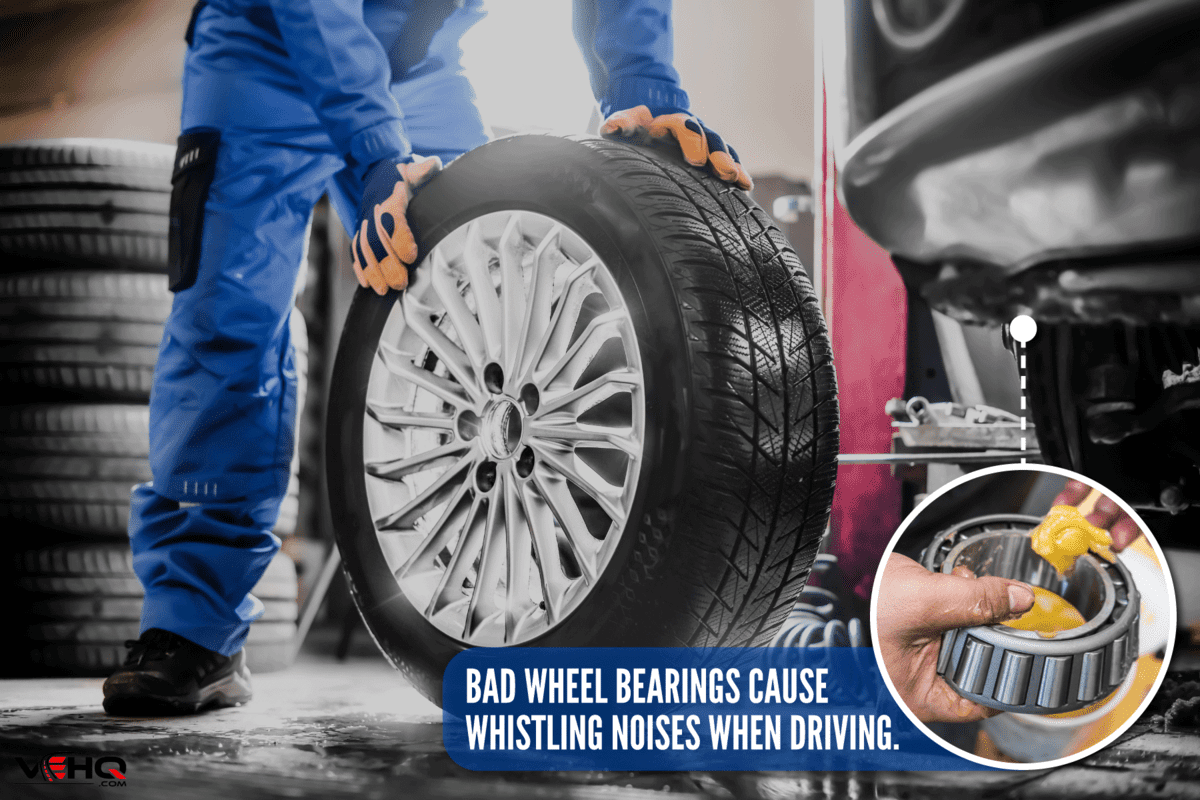
What Is A Wheel Bearing?
Your vehicle has a lot of parts, and you may not be familiar with them all. To even begin to understand what could be wrong with your wheel bearings, you need to know what they are and where to find them.
The wheel bearing in your vehicle includes a series of balls connected by a ring. The ring — known as a race — and the balls are made of steel. In a vehicle that’s operational, the wheel bearings sit in the hub, or a hollow metal area at your wheel’s center.
The wheel bearings should be positioned near the metal axle shaft so that each time your vehicle’s tires turn, there’s less friction.
Do Wheel Bearings Whistle?
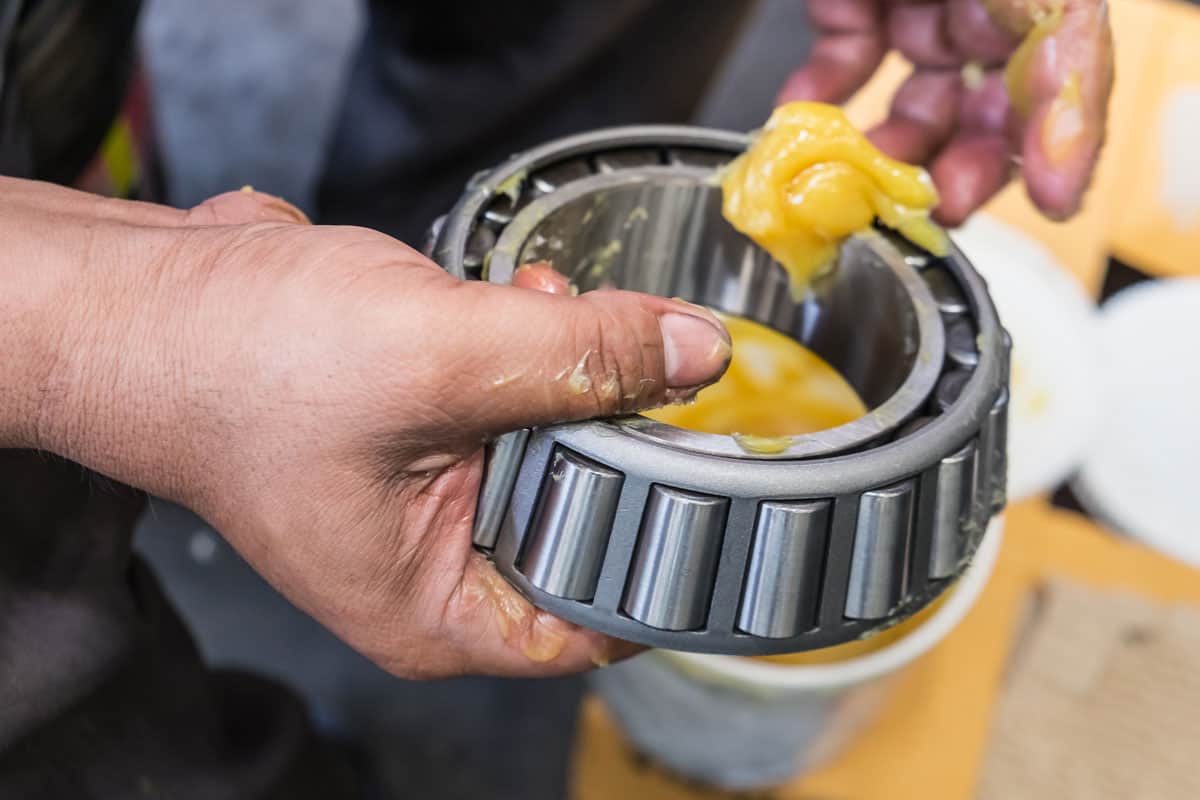
Although they’re metal, wheel bearings don’t last forever. Wear and tear will cause them to break down. That’s when you may start to hear the telltale whistle we described earlier.
Things can get a little confusing, admittedly, because whistling isn’t the only sound your vehicle may make because of wheel bearing trouble. At different times it may growl, squeak, and hum.
If you’re hearing a growling or squealing sound or even something that’s more like a chirp than a whistle, those are all indicators of a bad wheel bearing. If it’s a humming noise instead, then it could be a tire issue or even the CV joint.
The constant velocity or CV joint is included in vehicles equipped with front-wheel drive. Sometimes those with four-wheel drive, such as trucks, also have a CV joint.
The joints are attached to either side of the half shaft or drive shaft. The outer joints connect the wheels to the drive shafts while the inner joints link the transmission and drive shafts.
The job of the CV joints is to take the transmission’s torque and transfer it to the drive wheels so these can move at the same consistent speed. If your vehicle is front-wheel drive, when you turn, the CV joints send the torque to the two front wheels.
What if you’re hearing a rattling sound from your vehicle instead? Check out this guide to see what may be causing it: Rattling Noise From Front Passenger Side When Driving - What Could It Mean?
How Do I Know If My Wheel Bearings Are Going Bad?
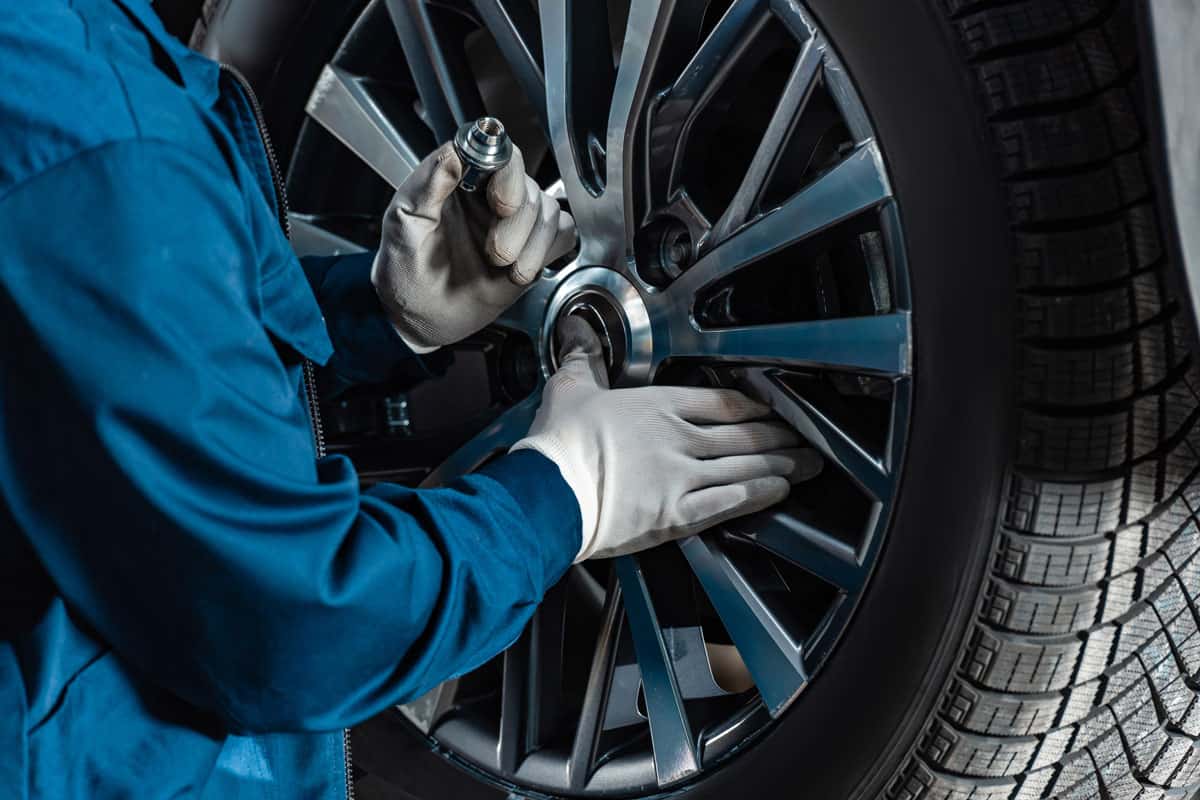
We’ve established that wheel bearings can indeed go bad, which means they’ve worn down to the point where they’re adversely affecting your vehicle. How can you tell when that's happened?
Trust us when we say you’ll know. The next time you’re in your vehicle, look out for the following indicators.
You Haven’t Gotten Your Tires Rotated In A While
According to Bridgestone, each time you drive 5,000 miles in your vehicle, you should rotate your tires. If you’ve recently scheduled an oil change, add the tire rotation in while you’re getting the vehicle tuned up.
Rotating your tires ensures all four tires wear down at about the same rate, which can prevent one or more from having to be replaced prematurely. You also maintain the same traction across tires because the tread depth is similar from one tire to another. Now when you brake or turn, you don’t have to worry about a front or rear tire fighting you.
Failing to get your tires rotated could contribute to your wheel bearing wear and tear, so please don’t forget this essential car service.
Your Vehicle Pulls As You Drive
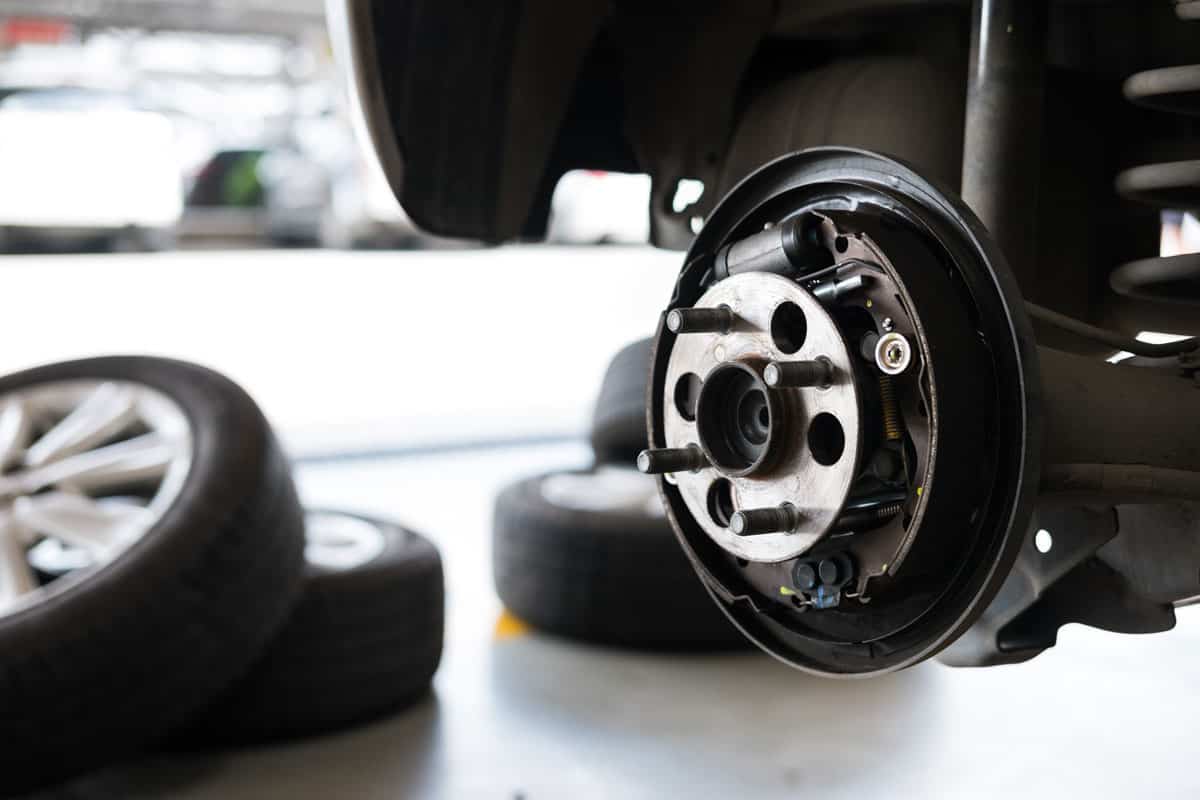
Let’s say you did skip the tire rotation for quite a while. You’ve also been hearing whistling from your vehicle, which you know isn’t good.
How do you feel when you drive your vehicle? Is it almost like an invisible hand is dragging you left or right even though you’re driving perfectly straight?
This isn’t from the wind, nor is it your imagination. Your vehicle is pulling, and it could because of the wheel bearing.
The Vehicle Has A Loose Feel
Maybe you’re not experiencing a pulling feeling so much, but the vehicle just seems loose. When you steer, it’s like your vehicle is slow to listen and move with you. This can be scary, and it’s a problem worth addressing right away. It’s likely the worn-down wheel bearings are causing this issue.
If your steering wheel won’t go straight when driving, check out this guide: Steering Wheel Not Straight While Driving [Here's What To Do]
Hearing Strange Noises
Any of the above symptoms accompanied by a whistling or other sound essentially solidifies that yes, it is indeed a wheel bearing problem.
As you climb into the driver’s seat next, really listen to the whistling. Turn down your radio volume and avoid conversation so it’s just you and the sounds of your vehicle. Does the whistling get louder if you go faster and quieter when you drive slower? Do turns make it worse? That all points to the wheel bearings as the culprit.
Can You Drive With Bad Wheel Bearings?
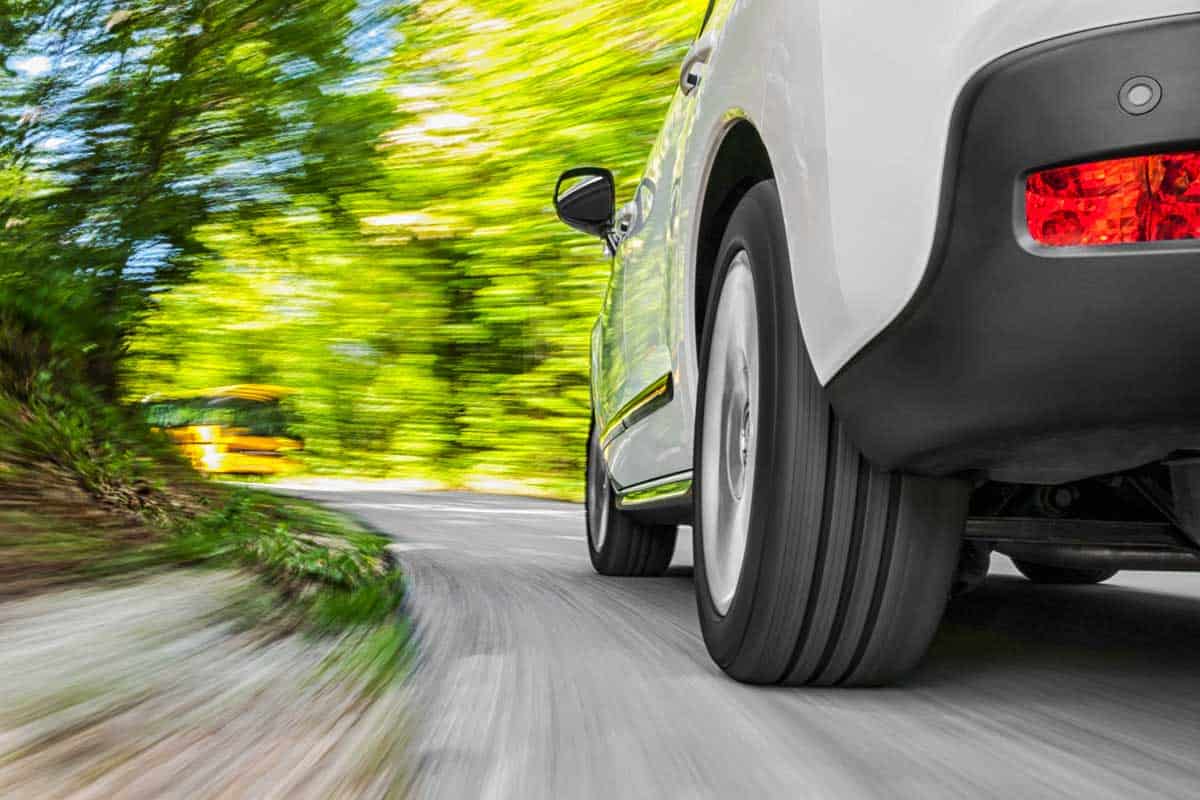
Okay, so you’re all but certain you have a bad wheel bearing. Still, your vehicle drives okay enough, so you can probably get away with ignoring the problem for a little while, right? Most certainly not.
Even though things might be alright now, your vehicle could get loose on you. That can be dangerous if you need to make a split-second decision on the road and your vehicle doesn’t respond in time.
Your tires are also wearing down at different rates, so you could have to replace some of them early.
The whistling noise will get worse, which will drive you crazy. You risk the wheels failing as well, like stopping while you’re on the road. In some cases, the wheel can come off if your wheel bearings are in very poor shape. Obviously, this would be catastrophic.
You can also damage your transmission, as a bad wheel bearing strains the transmission, the CV joint, and the wheel hub.
How Much Does It Cost to Replace A Wheel Bearing?

You just called your mechanic and scheduled an appointment to get your wheel bearings looked at and likely replaced. How much is this job going to cost you? The price varies, with estimates starting at $140 to $180 and going as high as $200 to $400 according to Auto Service Costs.
If you have a pricier car, you will likely pay more for the wheel bearings than you would with a less expensive, everyday vehicle. Even still, don’t expect to skate by at $100 or less for this job, as it’s just not going to happen.
So yes, wheel bearing replacements are quite costly, but they’re also essential. To prolong the life of your wheel bearings in the future, we recommend regular tire rotations. Also, at the first sign of a problem, see your mechanic. The longer you wait, the more damage you do to your vehicle.
What Are The Signs Of A Vacuum Leak?
In some instances, you could get your wheel bearings changed out and still hear the whistling noise. If so, then it turns out it wasn’t a problem with your wheel bearings at all, but rather, a vacuum leak.
As you drive, your engine brings in air, which, at those speeds, makes a vacuum. This air vacuum can get transferred to your vehicle’s cabin as well as other parts. If a vacuum line were to get severed or otherwise leak, then now the air gets redirected to the vehicle’s hose instead. This could be what’s causing that whistling noise.
Sometimes the sound resembles more of a hissing, but that’s one sign of several. You may also notice you stall out, your vehicle idles roughly, and the check engine light won’t turn off.
Finding a vacuum leak is a difficult job, so we recommend taking your vehicle to a mechanic for a proper diagnosis.
In Closing
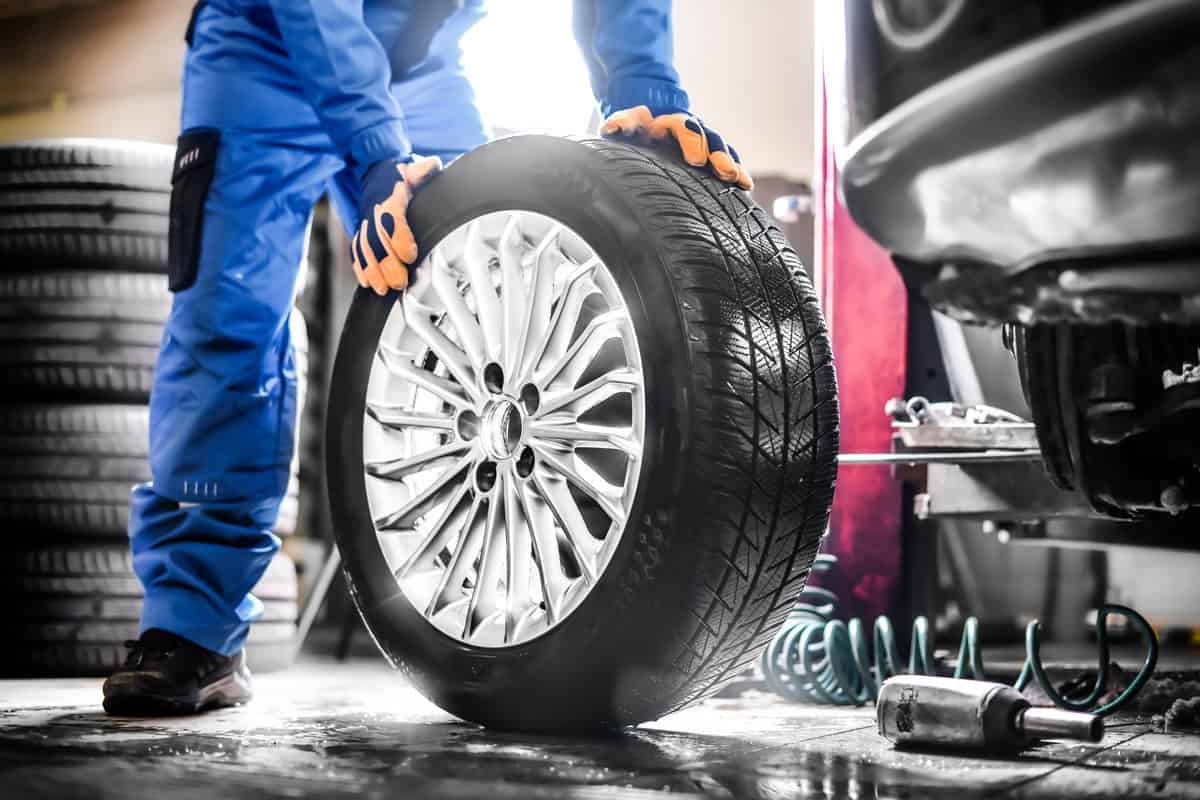
If your vehicle whistles while driving and turning, it’s likely a wheel bearing issue. These metal parts can go bad with time as they get worn down. If your vehicle pulls or feels loose while you’re driving, then it’s probably a bad wheel bearing.
You may also have a vacuum leak in your vehicle. This can cause whistling and difficulty driving. No matter what has led to the unwanted whistling, if it’s fixable, it’s best not to delay in having it diagnosed and repaired. Good luck!
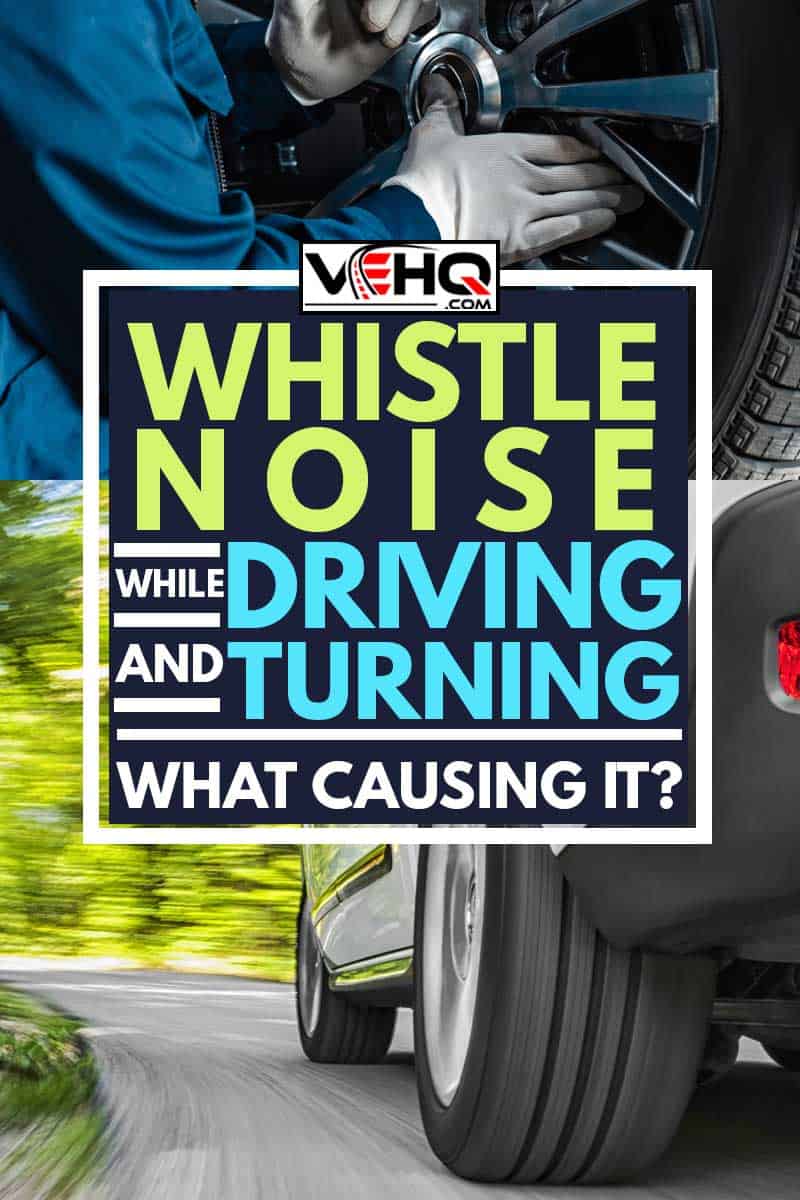

I have a Kia forte 2010.. when driving my car after a while like 15 miles or so……my back tires start to whistle….but the tire on the driver side sounds like the noise is actually in the tire. Cause when I slow down or stop the noise stops….what do you think?? Miles on the car is 150,000 miles
Almost 2 in a half yrs I got brakes and pads too.
Please tell me what you think??